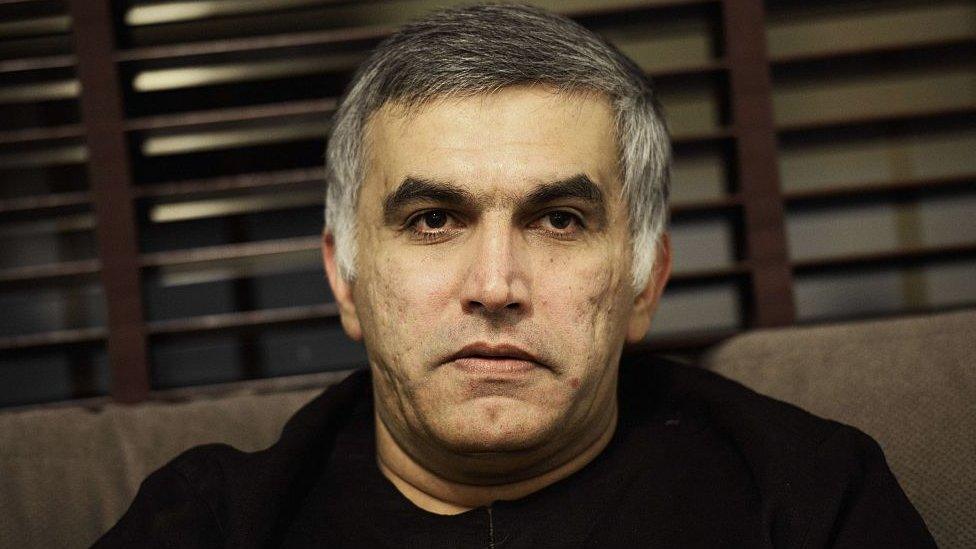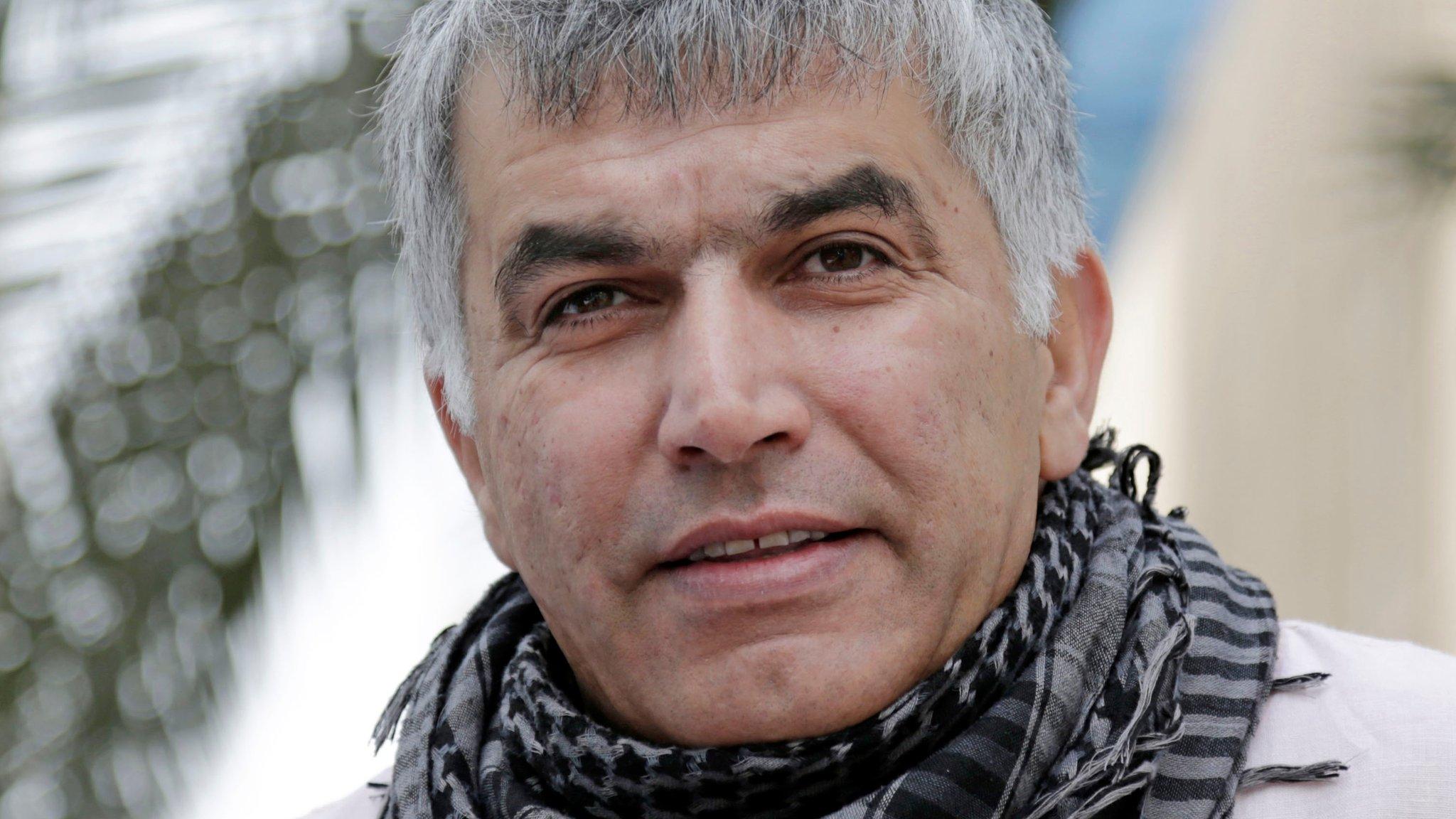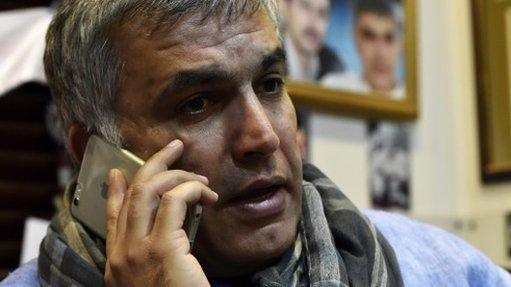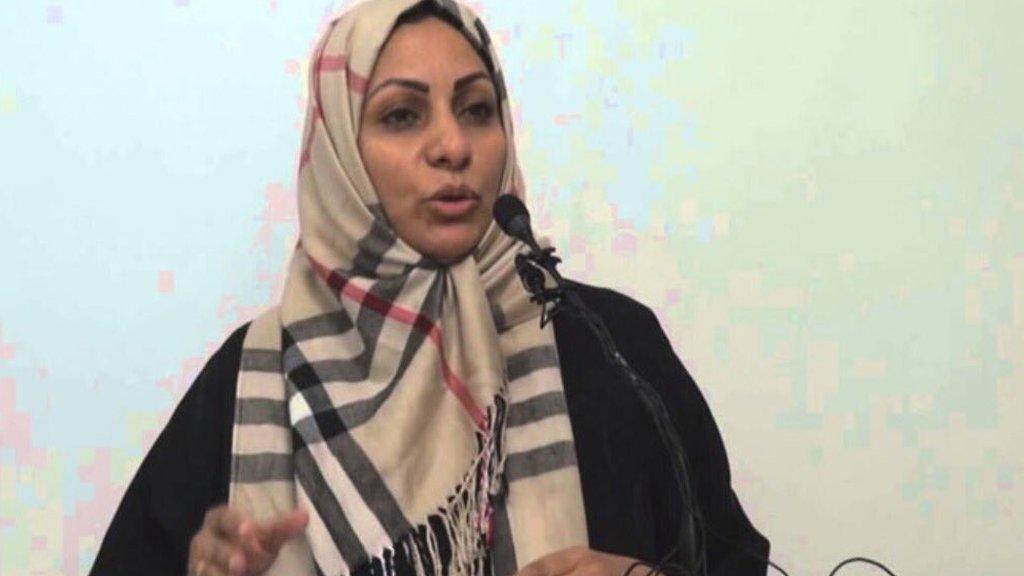Bahrain: Activist Nabeel Rajab jailed for 'fake news'
- Published

Nabeel Rajab is the president of the Bahrain Center for Human Rights
Human rights defender Nabeel Rajab has been sentenced to two years in prison in Bahrain for "broadcasting fake news".
A court ruled that he had undermined the "prestige" of the kingdom, the state news agency reports.
Rights groups have condemned the decision as an assault on free speech.
Nabeel Rajab, who is president of the Bahrain Center for Human Rights, also risks further jail time for political tweets.
The sentence is related to interviews he did with television journalists in 2015.
"Imprisoning Nabeel Rajab simply for sharing his opinion is a flagrant violation of human rights, and an alarming sign that the Bahraini authorities will go to any length to silence criticism," said Salil Shetty, Amnesty International's secretary general.
According to the Bahrain News Agency, the head of the prosecution said the charges were "not related to human rights activities and did not affect the right to free opinion and expression".
Nabeel Rajab, 52, has spent the last year in pre-trial detention.
He was sentenced in absentia, having been in hospital since April after complications following back surgery.
Free speech organisation Index On Censorship, which awarded him a Freedom of Expression Award in 2012, said he had been kept "largely in solitary confinement".
He has been in and out of jail since he helped lead a pro-democracy uprising in 2011.
In June 2016, he was arrested and jailed over his tweets about alleged torture in Bahrain's prison system and the Saudi coalition's war in Yemen.
Charges include "spreading false rumours in time of war", "insulting public authorities" (the interior ministry) and "insulting a foreign country".
Although a court ordered his release in December, he was rearrested almost immediately.
He has also faced other "fake news" accusations since writing an opinion piece in the New York Times, external about Bahraini political prisoners last December.
The hearing for the Twitter case has been postponed multiple times and the Bahrain Institute for Rights and Democracy says he faces 15 years if convicted.
The next court date is 7 August.
- Published7 September 2016

- Published20 January 2015

- Published4 July 2017
